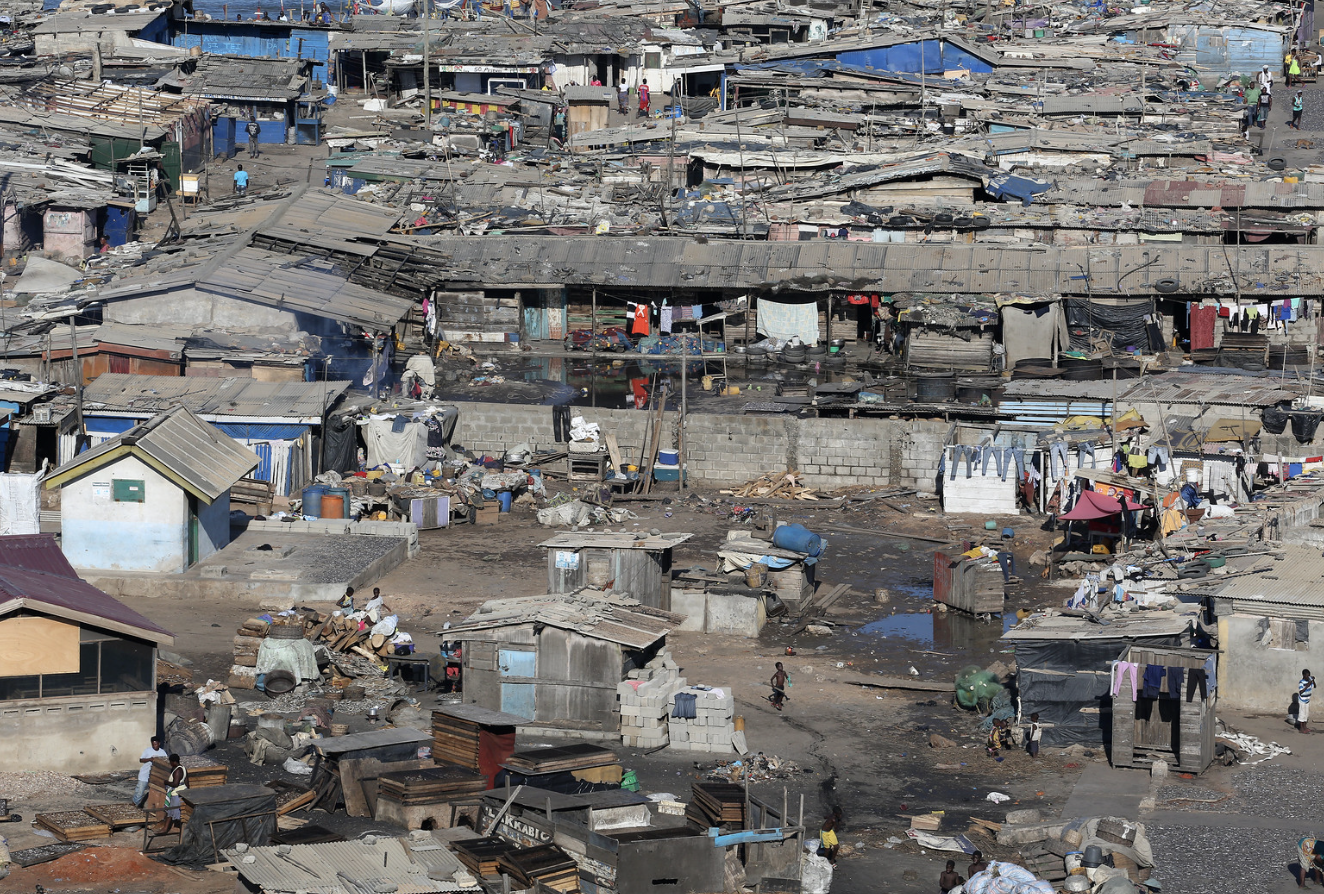News
Why Ghana’s Economic Orchestra is out of Tune
Overcoming the entrenched interests hindering progress within our governance bodies, especially government, becomes central to breaking the cycle of poverty and social exclusion.

Twentieth-century historian John Iliffe asserted that “the role of the state has been crucial in the history of African capitalism”. He shared, for instance, that “white missionaries and officials gave black South African capitalist farmers the security they needed in order to succeed; white governments destroyed them when they succeeded too well.”
This shows how government support or interference can impact the development agenda.
His illumination of historic Africa vividly portrays the state’s pivotal role in sculpting the fate of development; a feature carried on into their post-colonial present state.
From the nurturing support offered to budding enterprises to the disruptive force that quelled burgeoning success, the state emerges as a decisive force shaping economic landscapes.
Decades later into a post-colonial era, the debate still rages about the state’s role in driving economic development in Africa when, in fact, it is not about their involvement per se, as Iliffe alludes, but how they are involved and the extent of their participation.
Despite country-level peculiarities, understanding why the African state operates the way it does is essential for development practitioners who seek to make it function better: more as a facilitator than simply a regulator.
Many of the reasons have roots in how the modern-day African state came into being at independence and thus require a cursory look at its past.
Colonial aftermath
During the 1960-1980 period, African states grappled with the aftermath of colonial rule, striving to establish robust nation-states and foster prosperity.
During this critical juncture marked by political and economic upheavals, a consensus emerged, advocating active state involvement in fostering development.
This approach, rooted in central planning and substantially boosting the economy, gained prominence.
Against the backdrop of formidable challenges stemming from the colonial legacy and internal political and economic complexities, African nations embarked on a trajectory heavily reliant on state-led development.
This strategic direction not only aimed to address pressing societal needs but also aligned with the political objectives of the ruling class.
The African state sought to extend its power and territorial presence.
Initiating numerous economic development projects aimed at boosting revenue, these efforts intended to expand the social contract by enhancing public services like healthcare and education.
However, despite these ambitions, state-led initiatives often resulted in inefficiencies, with agricultural productivity stagnating and state-owned industries proving financially burdensome.
The burgeoning public sector that resulted became a magnet for political patronage, leading to a surge in civil service employment.
This expansion fuelled intense party conflicts for governmental control, leading to fiscal mismanagement and, in some cases, political upheaval, as evidenced by Ghana’s somewhat tumultuous post-independence period.
In addition, the state’s economic interventions, such as creating numerous institutions and controls, were aimed at extending its influence and consolidating power.
This proliferation of institutions, while ostensibly for economic development, bolstered state and party control and increased competition for ownership and oversight of these resources to stay in power.
Under the guise of advancing economic progress and fostering national unity, many new public or semi-public entities, parastatals and programmes emerged.
So, too, was the desire to expand the reach of their influence, especially to rural areas.
Governments in most African countries took charge of the domestic marketing of various agricultural staples during this period.
Ostensibly aiming to enhance productivity and agricultural output, the proliferation of these institutions concurrently served as a means for the government to strengthen their grip and exert control over rural communities.
Consider Kwame Nkrumah’s efforts in rural regions aimed at consolidating political support. His strategy focused on cultivating alliances within rural areas, ensuring loyalty from voters, and maintaining stability. This deliberate emphasis on rural clientelism and local party-state structures served as a tool to diminish political opposition and solidarities among the urban and rural elites.
The neoliberal model
During the post-2000 years, when the neoliberal model of advocating for reduced state involvement in economies gained prominence, the role of the state in many countries started to evolve, with an increasing focus on private sector development and the free market as a tool for development.
John Kufuor’s so-called “golden age of business” at the turn of the century is an example of such. The policies and strategies pursued presented promising avenues for bolstering Ghana’s private sector growth.
However, the need emerged for an amplified governmental presence, extending beyond facilitating a conducive business atmosphere.
Given the country’s socioeconomic context, it became imperative for the government to foster an enabling environment and to furnish businesses with essential support and protective measures actively.
So, while the notion of a “golden age of business” appears to align with neoliberal ideologies, its meaningful realisation requires substantive intervention and contribution from the state – a statist approach.
We see this also in countries like Rwanda, where the government’s emphasis on economic development serves as a cover to deepen state power and expand political control.
In this case, the ruling party, facing internal and external challenges, pursued development to secure long-term political dominance and aligned state-led agencies and initiatives with global liberal ideologies to nurture a select group of politically connected enterprises, among others.
The modern challenges faced by African countries are evidence of the state’s chokehold on the development agenda.
In the context of Ghana’s socioeconomic landscape, the role of the state remains pivotal yet challenged.
Like other African nations, Ghana grapples with a state struggling to maintain robust infrastructure and essential social services. The unpredictability of government intervention in economic activities presents risks for all – from local farmers to foreign investors – impacting market stability and industrial productivity.
Moreover, and quite significantly, the evolution of Ghana’s post-colonial state structure illustrates a shift from the centralised bureaucratic model inherited from colonial rule to a more decentralised form. And this is where the stickiness originates.
This transition, paralleling the trajectory in other African countries, has altered the state’s efficacy in supporting the economy.
Patronage networks within the state apparatus have surfaced, contributing to fragmented state power and hindering the government’s ability to sustain the kinds of economic monopolies that were vital to the (neo)colonial economy.

As the state’s institutional coherence waned, its role in fostering economic activity underwent significant compromise, impacting the economic downturn observed at various points in Ghana, including now.
The interplay between political factionalism and institutional decay underscores the complexities of Ghana’s state dynamics and their ramifications for economic growth and stability.
Think of the government in Ghana as an orchestra conductor, trying to make beautiful music but facing challenges with the instruments. Imagine the instruments – roads, schools, healthcare – as getting old and out of tune.
Like the conductor, the government sets the stage for everyone to play their part. Over time, the government changed its style, becoming less coherent. Some musicians started playing different tunes, got better instruments than others, or chose not to play at all. This shift made it challenging for the conductor to lead the orchestra effectively.
Some influential groups started favouring their friends, making it harder for the conductor to create harmonious music for all to enjoy. This change weakened the orchestra’s performance, just like how Ghana’s economic growth has faced challenges due to these shifts in government dynamics.
The bottom line
Ghana’s government is like a conductor struggling to create a beautiful symphony. The changes in how it operates and the struggles for power among different groups affect how well the country’s “orchestra” – its economy – performs.
Ultimately, for Ghana’s “orchestra” to sound its best, the conductor – the government – needs to ensure all the musicians have the right instruments and are playing the same tune. Fixing these issues is crucial to get everyone back in tune and playing the same melody for Ghana’s prosperity.
In Greg Mills’ book Rich State, Poor State, we see how, with better choices, the right policies and the will to implement them, countries have been able to grow their economies and uplift their people, and why others, facing similar challenges, slide into low growth, social dysfunction and failure.
Transforming our economies into more prosperous versions will require a little more than grand gestures and profound catchphrases.
It will require making better choices and having the will to follow through by setting the stage for them to succeed.
Some of these choices include:
- Taking ownership of challenges: We need to embrace local ownership of our problems as well as their solutions. Genuine progress stems from acknowledging failures and taking responsibility for crafting effective solutions from within. It is easy and somewhat understandable to blame Covid for a nation’s woes, but so can everyone else, yet people are managing to thrive beyond that. Also, it should be more acceptable to fire deadweights in government.
- Deepening democratic competition: Democratic competition is a powerful driver for positive change, preventing, as Rich State, Poor State defines, “self-referentialism by governments”. It guards against authoritarian networks, ensuring ideas and principles align with societal needs. In a world where vested interests and elite rent-seeking have proven destructive, citizens need more options and a chance to kick out oppressors and poor performers.
- Understanding the political economy of action and inaction: Recognising that things happen and do not happen for a reason, and understanding why that is, is essential. There needs to be more of a concerted effort by development practitioners to develop capacity in this regard and leverage it to achieve the reforms necessary for growth. Acknowledge, also, that reform often involves risks, a lesson which the Baltic states of Estonia, Lithuania and Latvia teach. Political instability might accompany transformative changes; understand it, allow it and leverage it.
- Growth is an ongoing process: The growth narrative is intricate and ongoing, lacking a definitive finish line. All sides of the political spectrum must chip in to shape the outcomes we hope to realise. While we can disagree on how to achieve these outcomes, there is a need to forge a unified pragmatic social compact between and among the state, elites, working class and all else on where we are going as nations.
- Reinforce the basics for growth: Essential components for societal progress encompass not just legal frameworks but also mechanisms fostering innovation, policy vigilance and political accountability, academic freedom, a vibrant civil society, a free press, an autonomous legal system and truly functional courts. Without this, we will not have the ideas and investment we need, but rather an environment rife with the steep toll of corruption, nepotism and cronyism.
African governments need a transformative shift from being mere regulators to being facilitators.
This stance will challenge existing patronage networks and, with dogged enthusiasm, pursue strong institutions, transparent decision-making, accountability mechanisms and practical development outcomes.
Recognising the historical narrative that drives why we do things the way we do compels us to tread thoughtfully, understanding the state’s actions – whether as a nurturing ally or a constraining force – and how to leverage or modify those actions to produce the desired progress and prosperity, as the opening statement by Iliffe illustrated.
In essence, the state’s enduring centrality in African economies necessitates innovative approaches to address the persistent challenges of poverty and underdevelopment.
Access to rents and perks must not precede genuine socioeconomic development. That only perpetuates cycles of low growth and high unemployment, as many African countries face today.
Overcoming the entrenched interests hindering progress within our governance bodies, especially government, becomes central to breaking the cycle of poverty and social exclusion.
We need to do things differently to be able to see different results.
This article originally appeared on the Daily Maverick


